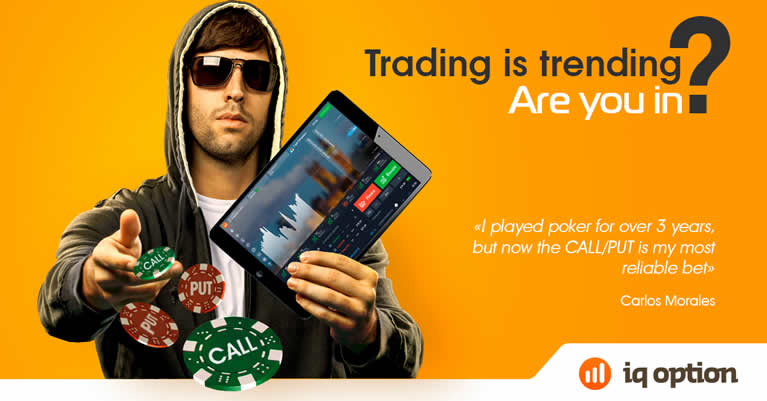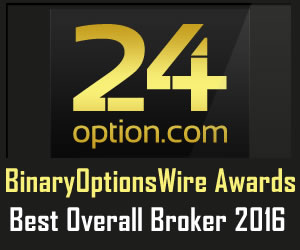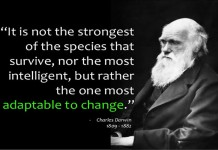The truth of the matter is that the online forex market is booming. This in turn means that forex brokers keeping popping up, claiming to be offering an improved and innovative service, each boasting of how and why they are worthy of your custom.
Undoubtedly the more brokers competing for your trades the better for each individual trader, as competition is indeed a driving force that can potentially lead to better offers and trading conditions for the simple trader. However, this can only hold if the trader makes the right decision when choosing the broker via whom he/she will place his/her trades. The sheer volume of brokers currently operating, added to those who keep entering the market even on a daily basis, the abundant reviews and opinions being thrown around, most shadowed by ulterior motives, even the different business models that are being offered, leave each trader puzzled and disorientated when called to make their choice of broker.
Below, we will examine certain aspects that we believe to be of paramount importance when selecting your forex broker. This is by no means an exhaustive how-to guide, nor a holy grail of any sort, but rather a compass aiming to help you find your way in the wilderness of online forex trading and not be eaten the by wolves, that come in many shapes and sizes..!
What is imperative for you to do before opening an account is to first define in your mind your own preferences when it comes to forex trading. Using these personal preferences as guidelines, you should then come up with a list of questions and then compare the answers that brokers give to these questions, in order to discern who is the right broker for you. Obviously, in order to be able to compare and contrast the brokers effectively, you should have a common list of questions, consisting of items that are applicable to all or at least most brokers. We offer here an indicative list of such questions, and discuss some of its aspects in more detail below, but please bear in mind that you could, and perhaps should, modify these questions in order to better reflect your own trading profile, although the core issues are significant for all traders:
Ask whether the broker is regulated and if yes, then find out by which authority and in which countries.
Find out exactly what currency pairs each broker offers for trading.
Enquire about their customer service, including the methods available for communication and the working times during which you can get hold of them.
Find out details about the deposit and withdrawal processes, the payment methods accepted and the associated timeframes.
Ask about the trading platforms available and learn if they offer a mobile application for trading on the go.
Be sure whether they are an actual broker or mere service desk, because this is often what determines what they charge you for facilitating your trade.
Last, but by no means least, perhaps the most important information you should be looking out for is whether the money you deposit in your trading account is deposited separately from the brokers’ operational capital, because otherwise your funds are risk not only through your own poor trading decisions but also from any mismanagement that may cause the broker to go bust.
Some of the answers to the questions cited above are straightforward and be obtained easily just by visiting a broker’s site. Others require a more detailed and careful snooping around, since at times when cannot take a response by a broker at face value. For example a broker may claim to be depositing your money separately and thus keeping it safe, but there is no really away you can be sure of this, unless you are actually granted access to this account, which is, of course, not going to happen.
For what is worth, it is wiser to avoid doing business with unregulated brokers, even if they promise more luring returns, because the associated risks are much greater and in case of a dispute you will have no higher authority to resort to in order to obtain any legal protection.
However, simply being regulated is not enough. The quality of the regulating authority should also come into play as a factor to consider. A government authority regulating a broker in a country with no proven track record of tight law enforcement or adherence to the rule of law, is very similar to an unregulated broker. If you as a person don’t feel confident and safe to go on holiday to a certain country, then you shouldn’t put your money under the custody of the authorities of such a country!
Moreover, proper regulatory bodies should also be able to provide you with capitalization information on each broker they are regulating and this is a good indicator for whether a broker is sound and a reliable place to park your funds. Generally speaking the authorities in more advanced countries, such as the USA or the EU member states, have in place stricter controls and more effective system of scrutiny and checks. Therefore, brokers licensed in these countries are more likely to be trustworthy and well capitalized and thus a safer heaven for your money. The good news is that as the forex industry is expanding the need for greater regulation becomes evident and accepted by all those involved in this market and regulating bodies are upping their game as well, in order to keep up to pace with developments in the industry and to make sure that any loopholes are nipped at the bud.
One other thing that is abundant in the forex industry is the different kinds of platforms being developed by brokers, through which your trades are conducted. Being at ease with the trading environment is of paramount importance and perhaps even the key to trading success, so make sure that the platform offered by the broker you choose is one where you feel really comfortable dealing with. Perhaps the most popular and widely used platform is the MetaTrader 4, but there are many others, and there is even a MetaTrader 5 that has been launched recently and is thus in the early stages of its life.
However, in reality most platforms share the same basic features and their major differences have more to do with the representation side of things, the wrapping paper rather than the actual content of the box. The use of graphics and indicators is a prime example of such differences. Nevertheless, there do exist platforms with distinguishing features, the analysis of which is beyond the scope of this article. What we would suggest is that choosing the platform best suited to your own needs and idiosyncracies is primarily and ultimately a personal choice and the only way to be completely sure a platform is best for you is by testing and trying it out, through a demo account. With most reliable brokers and platforms offering such a feature, we could safely argue that brokers and platforms that do not give you the chance to test them via a demo are most probably not worth your custom or time to begin with.
Critical to your decision should also be the type of broker that you will choose to deal with as this bears a direct effect on many aspects of trading, such as the level of spreads, the amount of commission and the degree of leverage that you will be allowed. In broad terms you can choose between a dealing desk broker type, who makes their money from based upon the spread of the trade, and will often take the other side of the trade against you, if it can’t be matched with that of another customer. Besides pocketing pips to facilitate your trade there shouldn’t be any other associated costs for trading with such a broker, although there is always the risk of the broker manipulating the market against you, especially in the absence of regulation. The alternative broker type is a real broker who will never take the opposite position, but will only offer it if it can be matched electronically through the Electronic Communications Network or ECN. Such brokers charge you a commission for each trade and thus often offer tighter spreads because there is no markup for them to be compensated with. When comparing between brokers remember to compare like with like, take into account that opening and closing a position counts as two separate trades and also consider that a determining factor is also the size of the trade you are planning to place and the leverage margin that is allowed. Thus, comparisons of any sense leading to valid conclusions can only be made when all these factors are combined and analyzed.
Most brokers offer a variety of different account types that you can choose from and finding the best one, according to your needs, could also be another weapon in your quest for successful forex trading. This is because each account type comes with dedicated features and perks, and since climbing up this ladder entails being willing and able to commit a larger amount of money to trading, the added features and bonuses you get are usually in line with the extra money you deposit. Naturally, the larger your account the lower the spread will be, when there is one. The different perks associated with each account type are usually clearly and neatly presented on each broker’s site, but, especially if you have a big wallet, you could contact a broker and strike a deal for a tailor-made account type and will best fulfill your requirements.
Being able to contract your broker is fundamental not only during the process of setting up your account but throughout your relationship with them. Therefore, pay particular attention to the accessibility and quality of the customer service. Ideally look for brokers who offer unlimited customer support, on a 24/7 basis and even in your own language, brokers who can be reached via many methods and at all times for any reason, those who are willing to call you back to spare you the cost and those who do not let you hanging when you are trying to urgently get hold of them.
We will not claim to have eased the task of choosing the right broker easy and straightforward. Because it is not and it will probably never will be. Moreover, it highly depends on personal preferences, circumstances and abilities and therefore it is not a “one size fits all” situation. The best broker for me is most probably not the best broker for you. What we have attempted here is to raise the flag on some issues and help you at least to narrow down your list. The best trader is the well-informed and well-educated trader, so make all your trading decisions, including choosing your broker in a wise and composed manner, without being tricked by false promises or bright lights. After all it’s your money on the line and you will be bearing the risks of trading, so you have every right and obligation to take prudent decisions. So, be smart, be careful and good luck!













